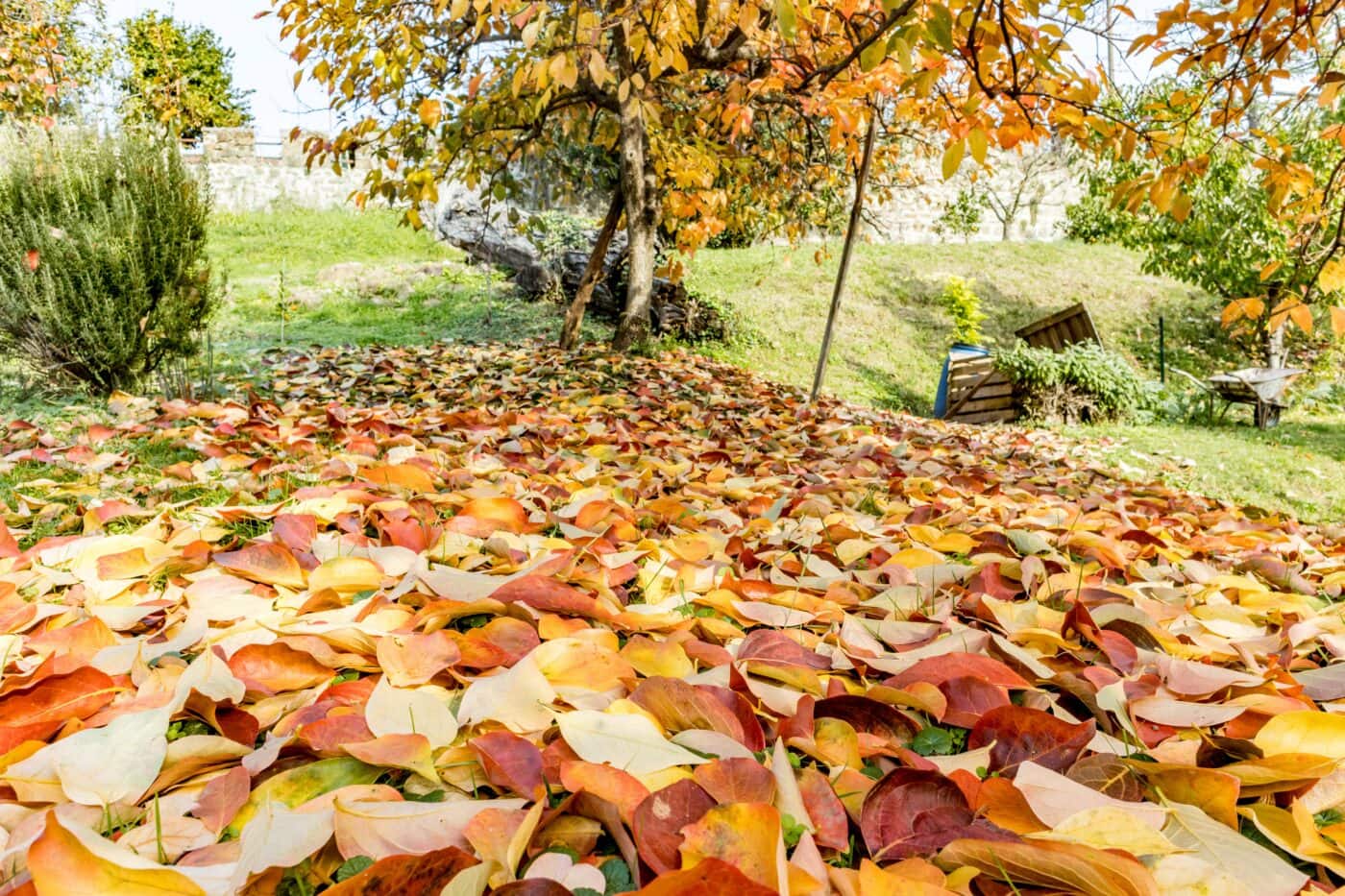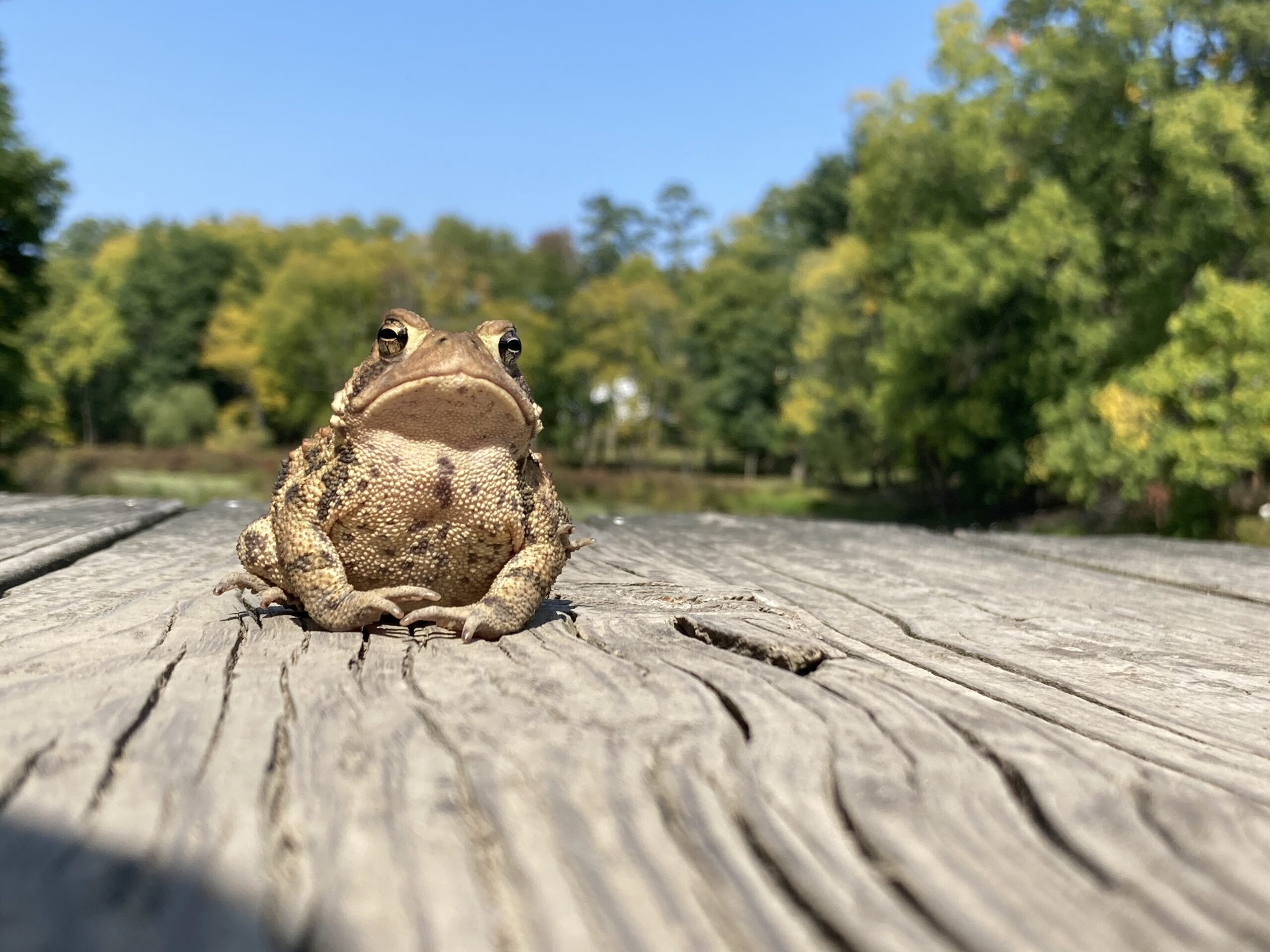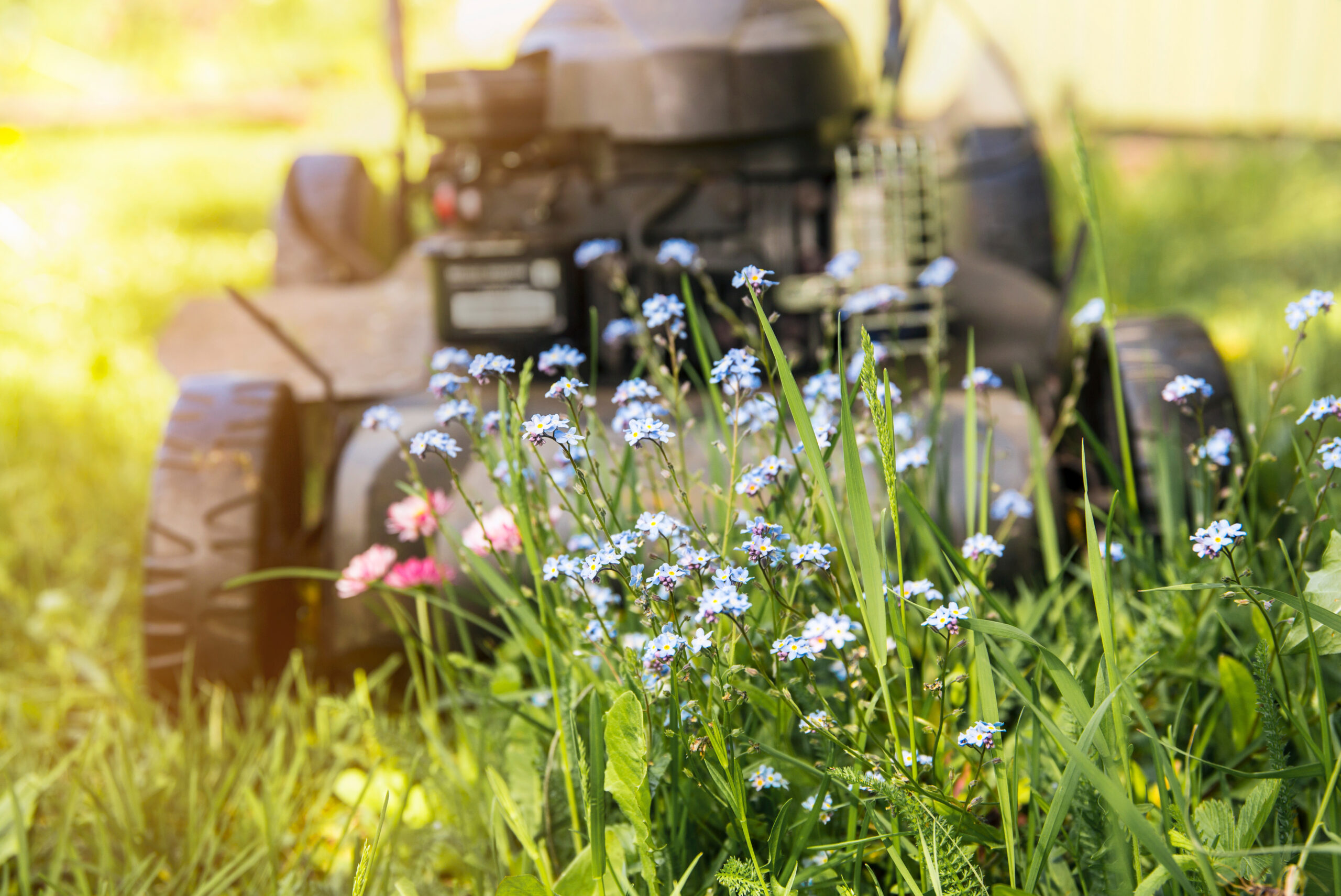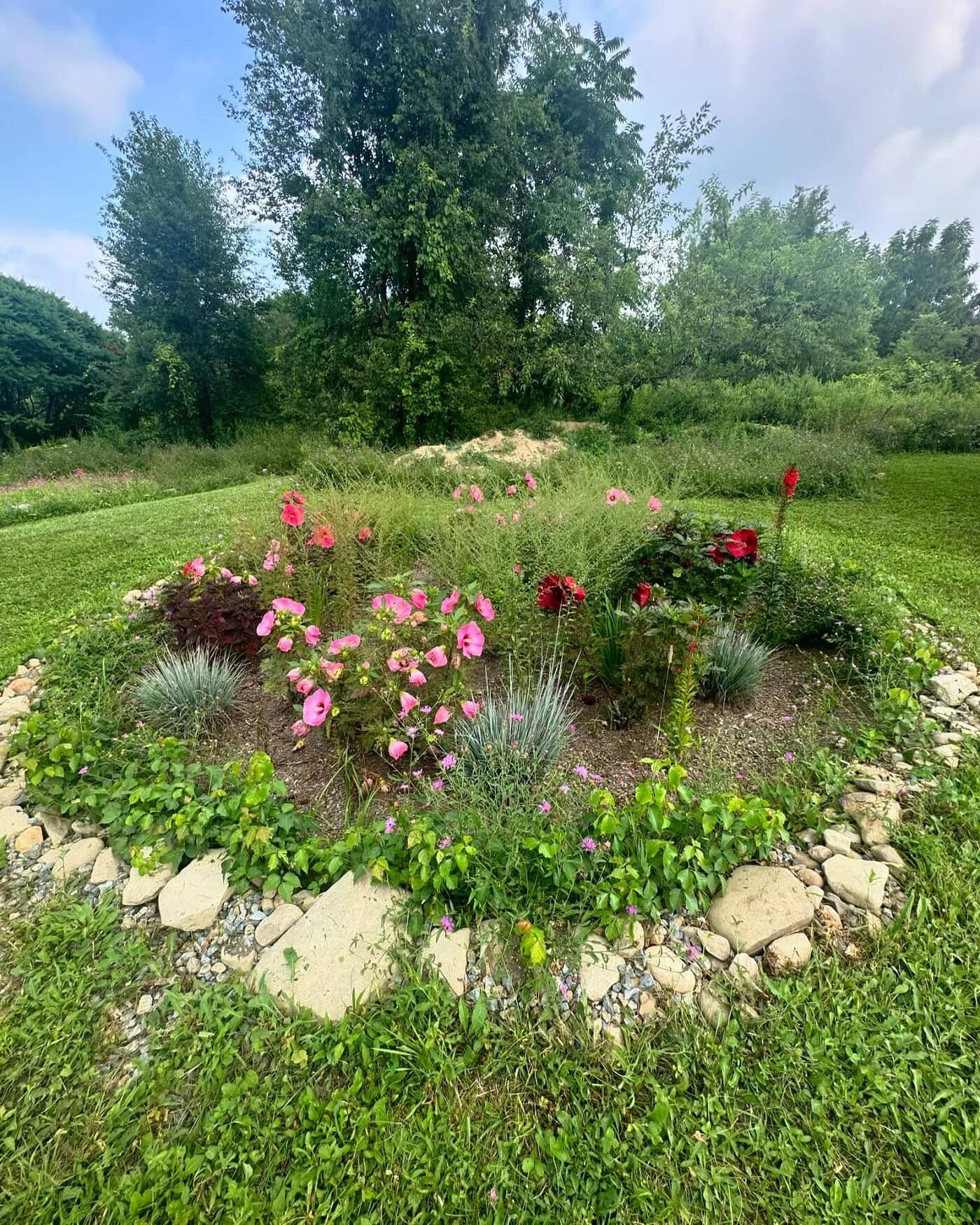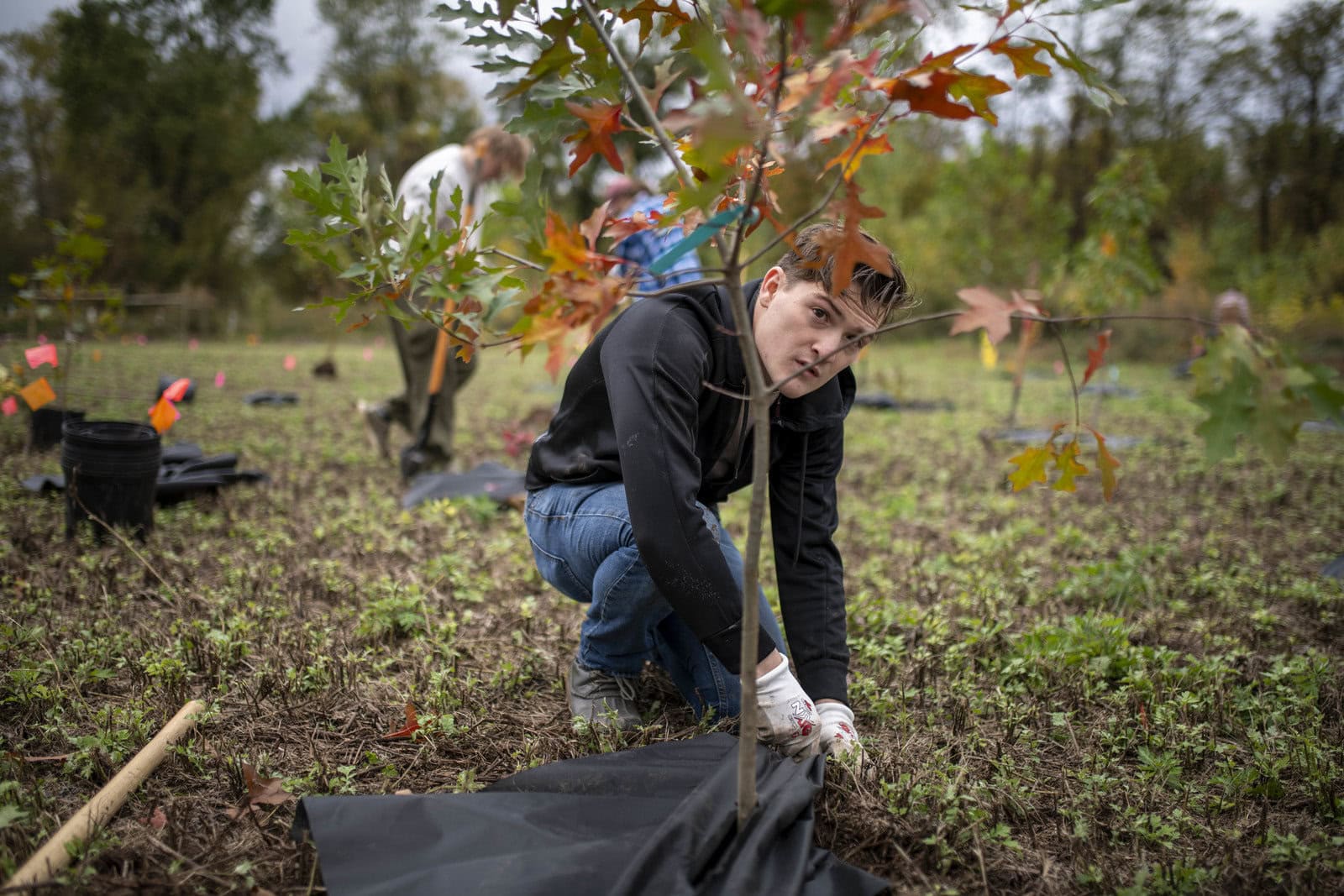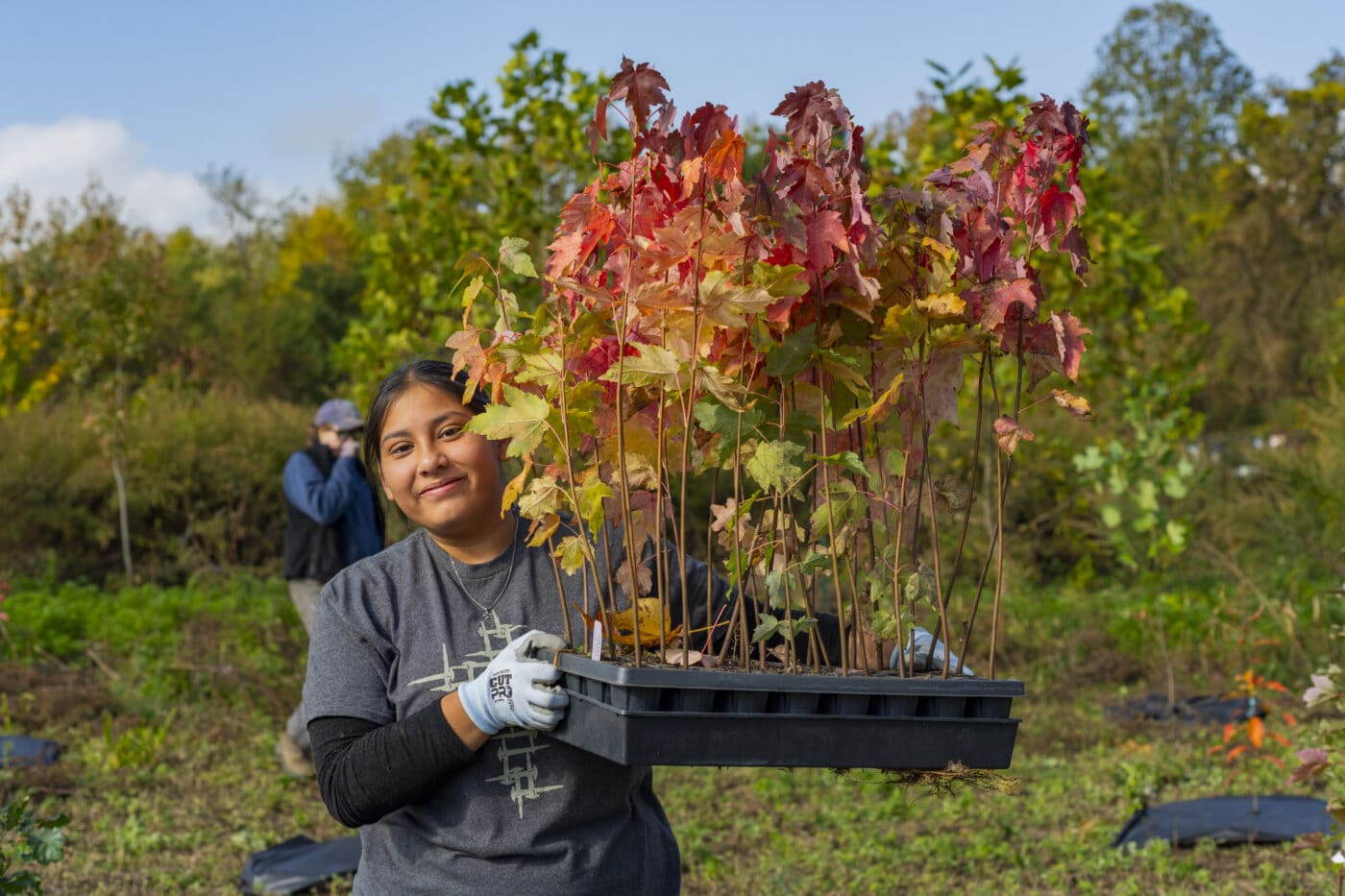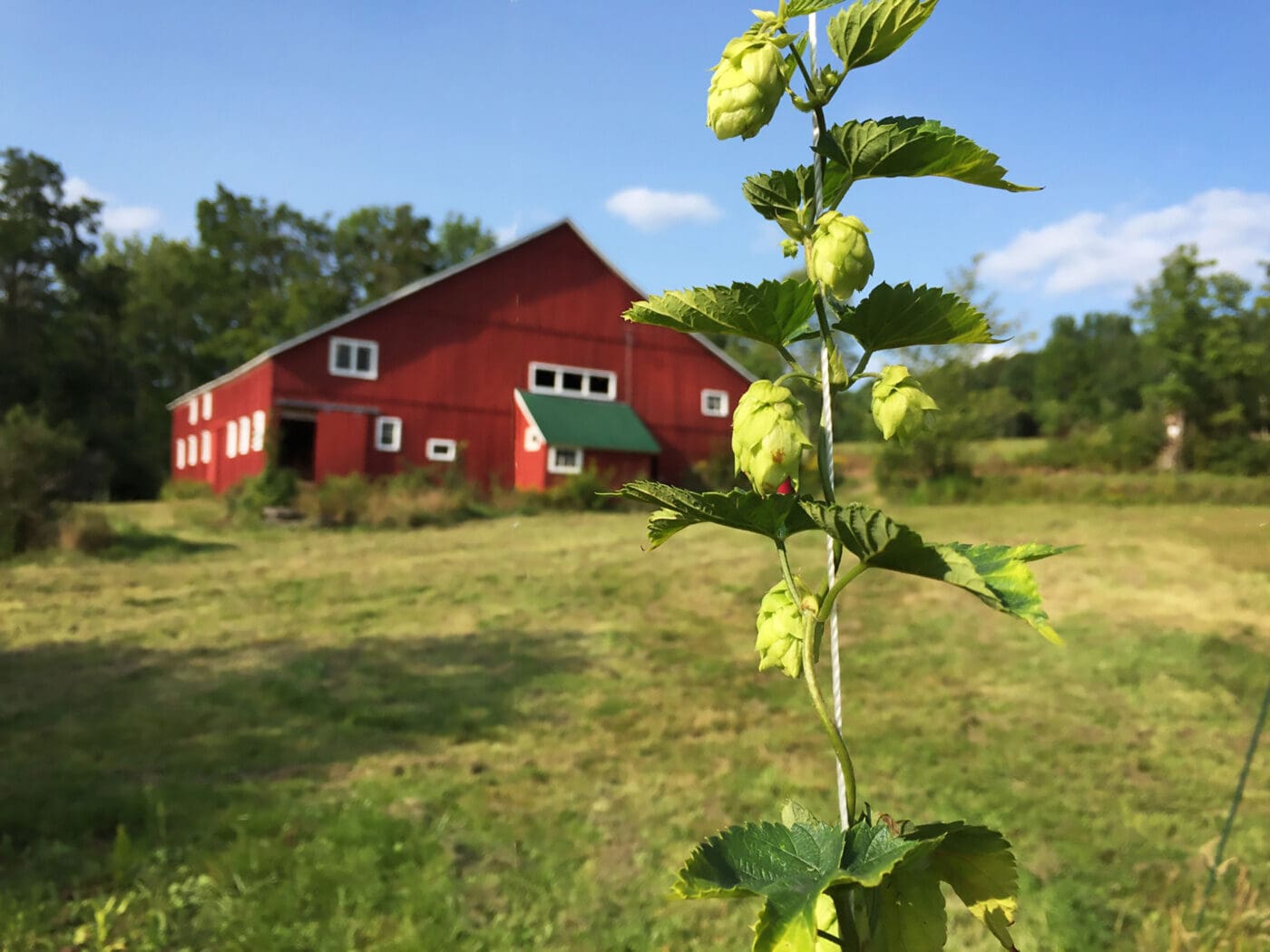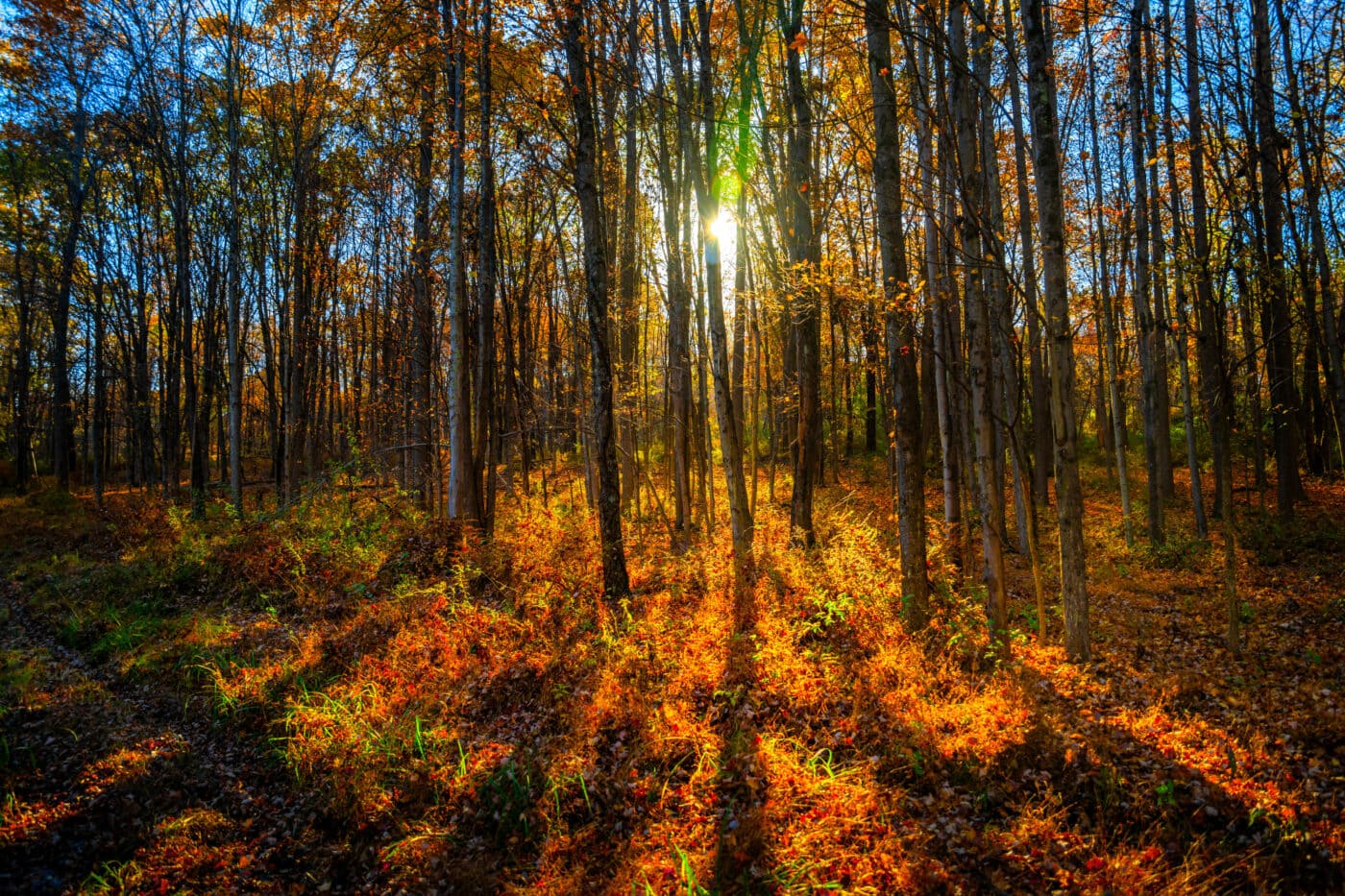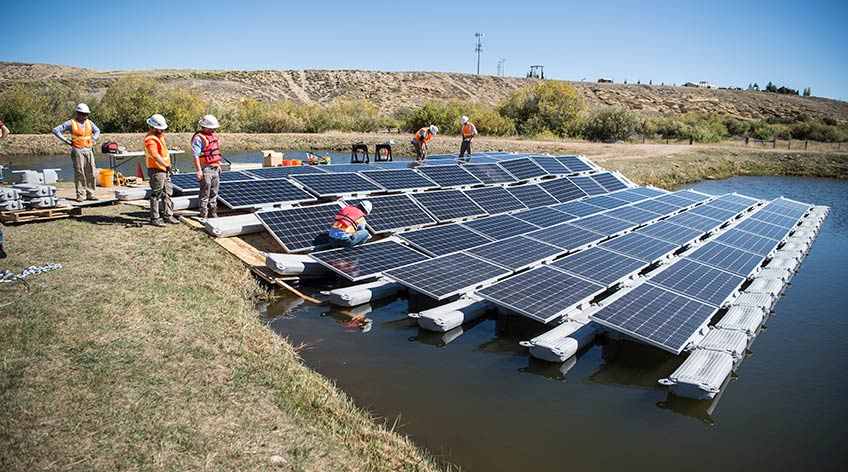When Michael Hall co-founded the Quiet Clean Alliance, a national network of campaigns opposing gas-powered landscaping equipment, he admits he “felt like Don Quixote out there, tilting against windmills.” Blowers seemed small to many — but he saw that they made an outsized environmental impact.
Shockingly, the “small off-road engines” found in gas-powered leaf blowers and other devices are together responsible for more emissions than cars in states like California, according to the California Air Resources Board. These smog-forming two-stroke engines are much smaller than those in passenger vehicles, but also less filtered. They have hugely negative effects on air quality, human health, and climate change.
“It’s particularly harmful to the workers, working that close to two-stroke engines, which only burn about two-thirds of their gas and oil mix, and send the rest out as exhaust,” Hall says. “It is a very difficult environmental justice issue, because a lot of the people who are using those gas leaf blowers don’t really have the knowledge or … the ability to transition to a less polluting form of lawn maintenance.”
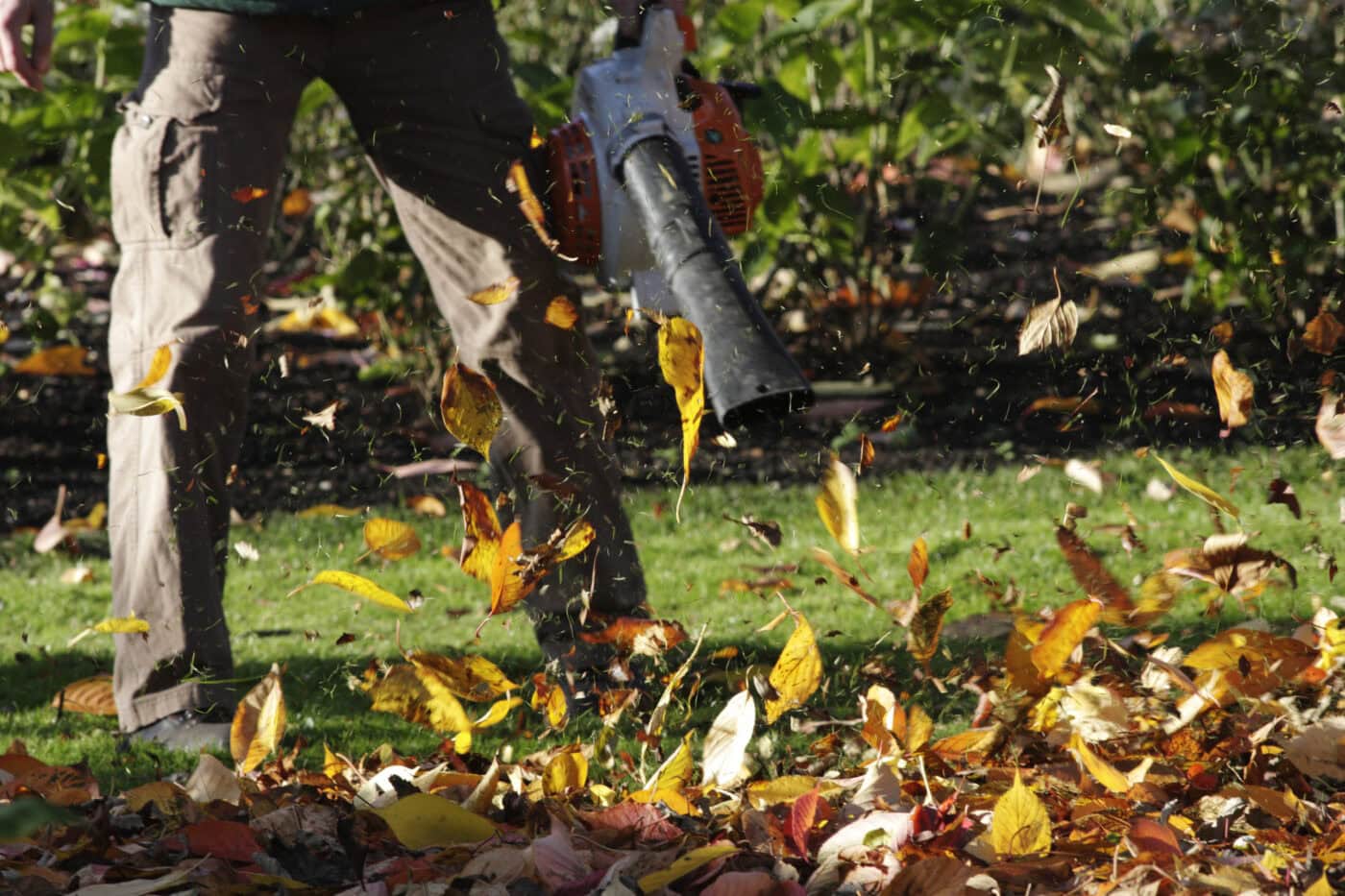
Gas-powered leaf blowers don’t spare animals either, especially tiny-but-ecologically-critical insects like fireflies, bees, butterflies, and moths. While there’s been a national movement to ban gas-powered blowers (sometimes in favor of replacing them with quieter electric models), a correspondent movement to “leave the leaves” is also growing. Its advocates work to educate people that fallen leaves contribute to soil health, help pollinators breed, and much more.
“Leaf litter maintains soil moisture, protects root systems and, as it decomposes, increases soil fertility,” says Julie Michaelson, pollinator conservation specialist with the Xerces Society, which is dedicated to protecting invertebrates. “These functions promote soil health and allow plants and wildlife to flourish.”
Leaves are critical to larger wildlife. Frogs, salamanders, turtles, chipmunks, squirrels, and songbirds all rely on leaf litter. Leaves also provide shelter, particularly for amphibians and turtles during summer and winter, when leaves help shield them or their burrows from temperature and moisture extremes.
How Blowers Are Noise Polluters, Too
In the late 1980s, Duncan Brine and his wife Julia left Brooklyn for the Hudson Valley. After spells in Garrison and Hopewell, they settled in Pawling, where they operate GardenLarge, a landscape design company. Focusing on naturalistic design using native flora (mostly grown in their own nursery), Brine appreciates the Hudson Valley and its landscape.
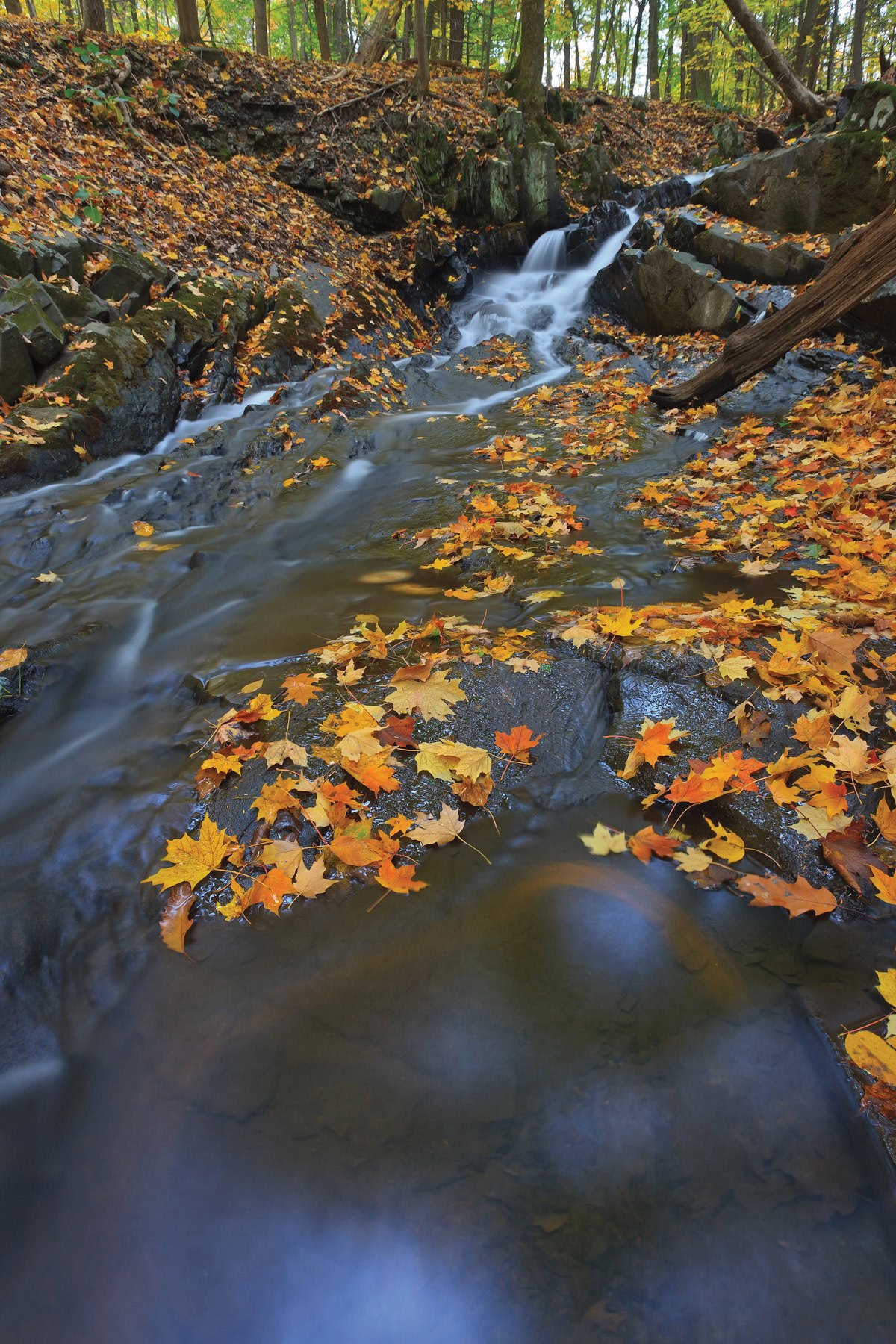
There is, however, one thing about life here that he doesn’t love. “The mow and blow guys,” he says with a laugh. “These lawn service companies that routinely go to properties once a week, and as quickly as possible, they mow and blow.”
And Brine isn’t alone. According to the Quiet Clean Alliance, at least 29 municipalities in Hudson Valley counties have bans or restrictions on such blowers, which are criticized as both noisy and noxious.
Gas-powered leaf blowers are uniquely blaring. Not only do they reach a decibel level that exceeds most noise ordinances, but they also operate on a frequency which penetrates very long distances. That makes them both loud and pervasive. But noise is only the most immediate problem presented by gas-powered blowers — one which has irritated activists like Hall enough to start looking into the problem, and unearthing much more serious issues.
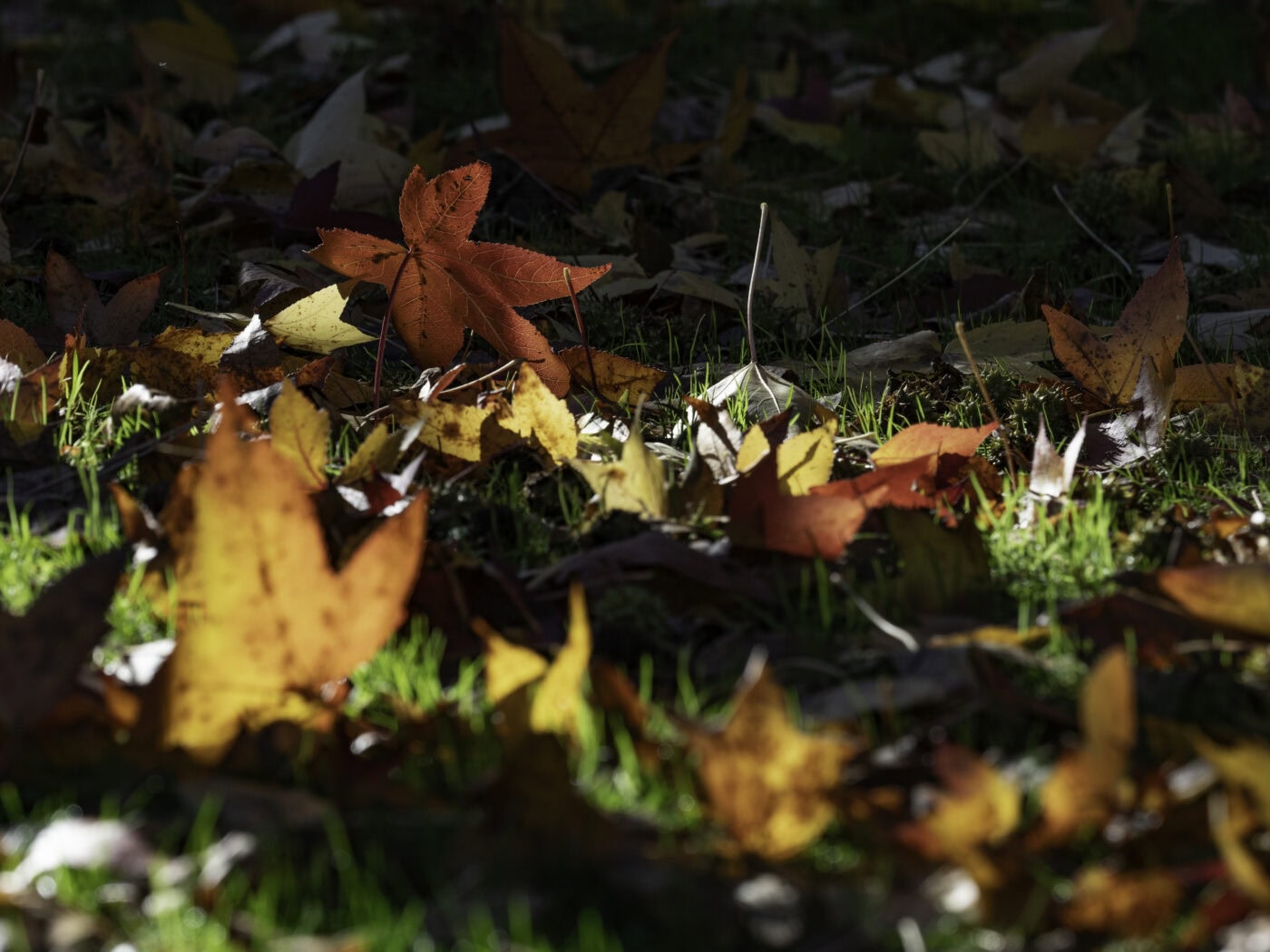
“Pushing the Envelope a Little Bit Further Every Year”
The municipalities in Hudson Valley counties that have already banned or restricted gas-powered leaf blowers tend to be concentrated in Westchester. This is partially a byproduct of Westchester’s landscape — large, suburban estates worked by landscaping companies, rather than homeowners, therefore contributing to the sense of nuisance created by noisy blowers. But it is also a testament to organizing by local activists, such as those with Healthy Yards, which advocates for sustainable lawn care and grew out of a local initiative in Bedford.
“The environmental groups in all those towns are pushing the envelope a little bit further every year, in order to reach full bans in the future,” says Filippine de Haan, a landscaper with Healthy Yards. “And if there’s enough consensus about this in Westchester, then probably New York State will get the guts to take this on as well.”
But de Haan warns that not all legislative efforts addressing gas-powered leaf blowers are aimed at banning or restricting them — some are actually seeking exceptions to legalize their use. Most municipalities already have noise ordinances on the books, restricting the permitted decibel level to less than the amount of sound produced by gas-powered leaf blowers. Rather than enforcing these existing noise ordinances to phase out such blowers, some municipalities are creating carve-outs allowing them to exceed the decibel level at certain times, effectively legalizing blowers that were previously outlawed.
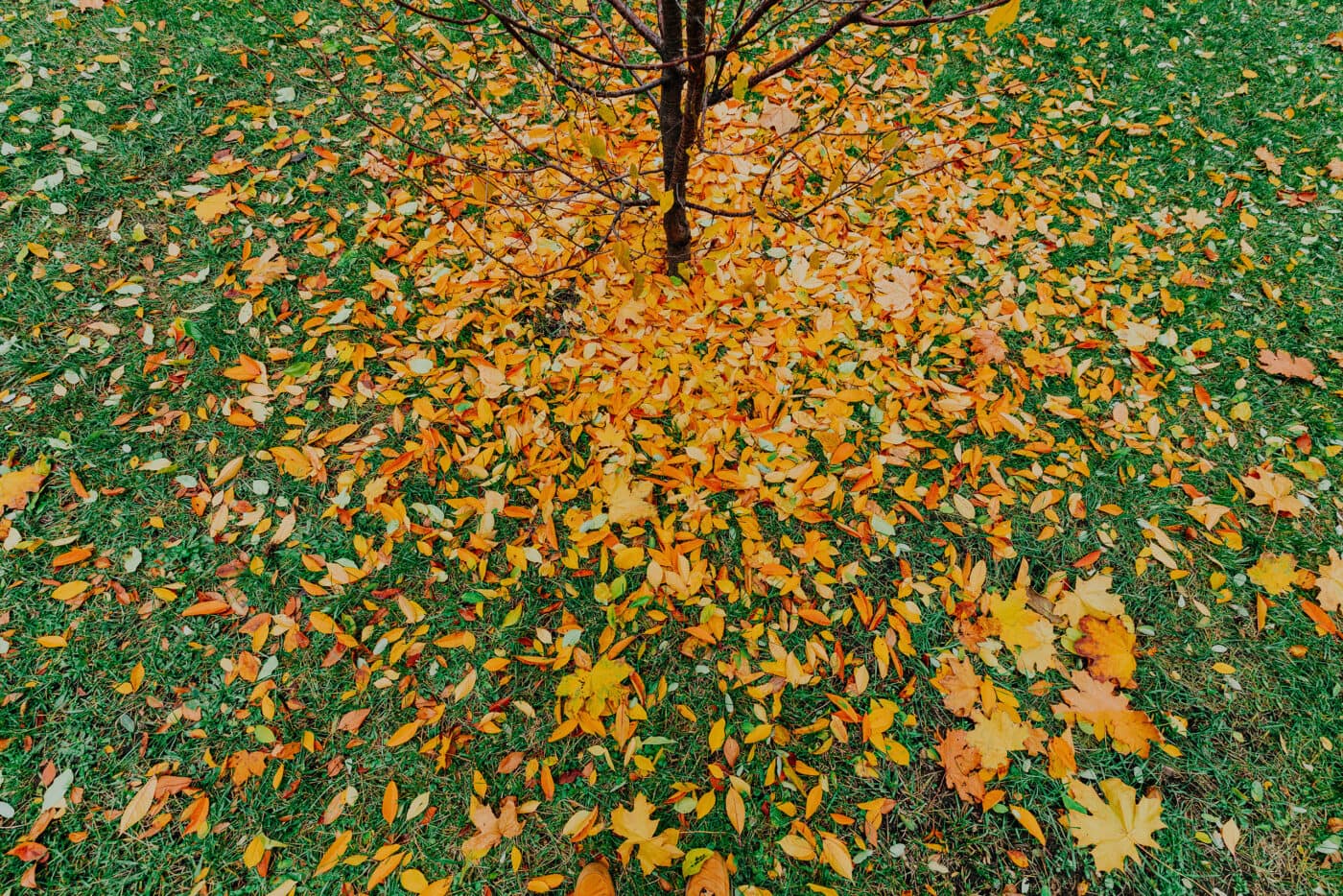
Wrangling over existing noise ordinances and gas-powered leaf blowers is ongoing in Hudson Valley municipalities like Beacon and Rhinebeck in Dutchess County and Bethlehem in Albany County, according to the Quiet Clean Alliance. Despite the potential setbacks, Hall believes that such blowers will soon be a thing of the past.
“Obsolete, I think, is the way that we’re going with this thing,” says Hall, who stresses the need for a “just transition” based on support, rather than punishment, to phase out gas-powered leaf blowers. “We don’t want to be heavy-handed about enforcement and punitive. We want to be educational, and we want to be helpful. We want to set up incentive programs.”
Brine of GardenLarge also underscores the simple, affordable, and voluntary ways that homeowners can help phase out gas-powered leaf blowers. Like the Quiet Clean Alliance and Healthy Yards, he advocates for a minimalistic approach to blowing, letting leaves fall where they may to serve as a natural source of mulch for plants and incubator for beneficial insects.
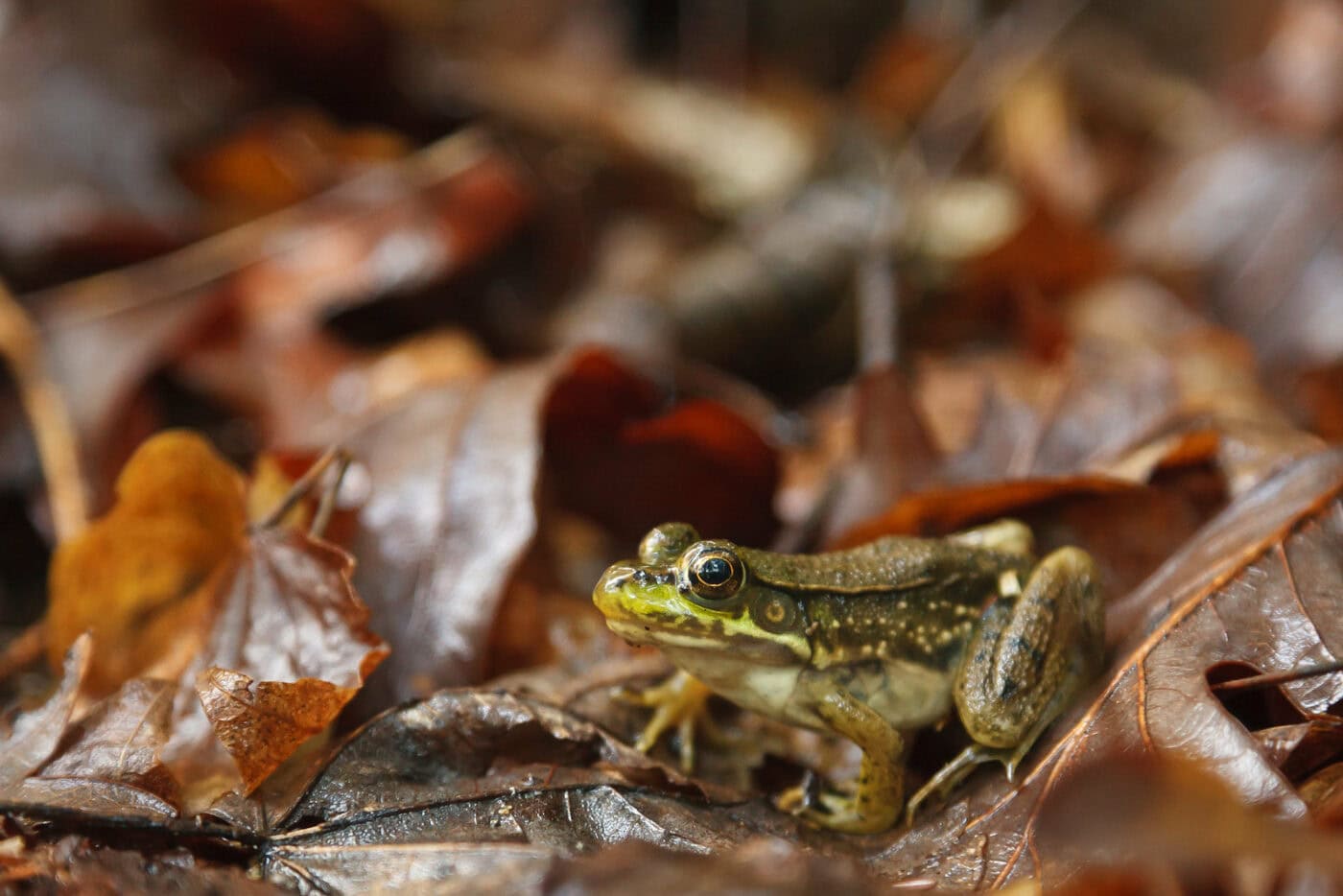
But for the homeowner who isn’t prepared to go all-natural, communication is key. “It’s a matter of making a decision on your property of what’s important to you,” says Brine. “So if you’ve got a mow-and-blow guy, and you don’t care about the grass clippings on your driveway, by all means, let him know. Let him know that it’s not necessary.”


